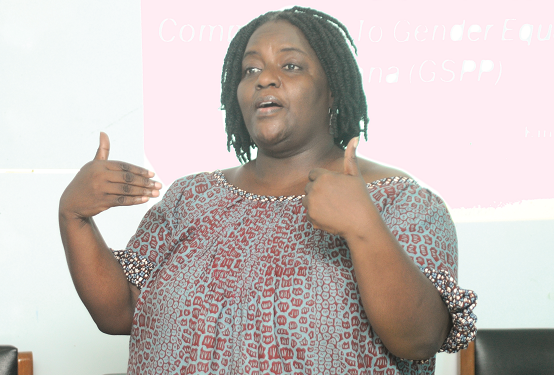
Abantu develops scorecard on political party commitment
Abantu for Development, a gender-based organisation, has developed a scorecard on political party commitment to gender equality in the run-up to the December 2016 general election.
Advertisement
The scorecard, which was developed with the support of STAR-Ghana, would serve as a tracking tool for evaluating political party practices of accountability and gender responsiveness.
It assesses the performance on gender equality of political parties that have had representation in Parliament at one time or the other over the years.
The scorecard was developed for the period 2004, 2008 and 2012, and used the Women’s Manifesto as its reference point, as the document provided a ready-made agenda for political parties and other policy makers as a blueprint non-partisan but political document on critical issues of concern to women.
The scorecard grades the performance of political parties and their women’s rights and gender equality promotion in six key areas, which are: commitments made in party manifestos, women’s representation within the party’s national executive councils (NEC), primaries/nominations of women, actual representation in parliament, appointment of women into public office and public policies on women.
The political parties that were assessed by the scorecard were the Convention People’s Party (CPP), the National Democratic Congress (NDC), the New Patriotic Party (NPP), and the People’s National Convention (PNC).
The scorecard
As part of its report, the scorecard showed that the political parties under study varied in the extent to which they had promoted women to leadership positions and recruited women as party candidates, as well as the extent to which they addressed political, economic and social issues of special concern to women policy development.
It said while some progress in some areas were noticeable, parity in political parties’ structures in promoting women was far from being realised.
In a presentation on the scorecard at a press conference in Accra, Ms Kinna Likimani, a member of the Women’s Manifesto Coalition (WMC), said without some needed interventions, women’s representation in political and public life would not be felt.
She said there was the need to address the inherent low representation of women in the decision-making processes of the country, and added that there was the need to address them through policies and interventions.
The Director, Abantu for Development, Dr (Mrs) Rose Mensah-Kutin, in an address said the scorecard had been launched to help women and the general public to make informed choices in the upcoming elections.
She said the scorecard would also help political parties to make concious efforts to improve on their commitment to women.
Writer's email: [email protected]



